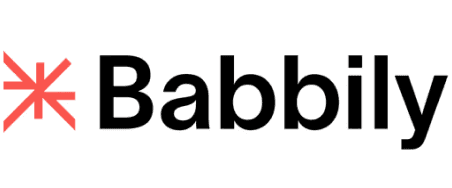Oct 1, 2025
Google’s Next Chapter: Smarter Homes via Gemini
Google unveils its Gemini-powered smart home lineup, blending AI with Nest devices, the Google Home app, and Matter integration for a smarter living experience.
Google is making a bold push to weave its latest AI — Gemini — more deeply into our homes. At its October 2025 event, the company unveiled not only hardware updates (new Nest cams, doorbells, and a next-gen Google Home) but also a reimagined software platform and a broader vision for how AI should flow through all manner of devices.
The core message is clear: Google wants to do more than sell smart home gadgets. It aims to build an AI foundation for everyday living and invite outside makers to build on top of it.
What’s New: Devices, Upgrades, and Strategy
Device Upgrades & Launches
Nest cams and doorbells are getting Gemini integration, bringing better scene understanding, activity summarization, and smarter alerts.
A revamped Google Home speaker, arriving in spring 2026, is designed to showcase how AI can elevate the smart home experience.
Google also teased cost-friendly devices through a partnership with Walmart, aimed at bringing AI into more households without requiring premium hardware.
Importantly, some Gemini features will roll out to existing devices that meet certain hardware conditions — so you may not need brand-new gadgets to benefit.
Software & Ecosystem
A refreshed Google Home app, now infused with Gemini, will offer insights, summaries, and natural chat-style interactions.
A new feature called Ask Home allows users to express goals like “Help me feel safer at home,” and the AI will suggest or configure routines automatically.
Google is releasing toolkits, reference hardware, and SDKs for “Works with Google Home” partners — opening the door for a broader manufacturer ecosystem built on Gemini.
The company is also doubling down on interoperability by supporting Matter and cloud-to-cloud APIs, ensuring devices from different brands work together smoothly.
How It Works in Everyday Life
Google’s vision for a Gemini-powered home goes far beyond issuing commands. Here’s how it might change daily interactions:
Say something vague like “I’m boiling eggs — set a timer,” and Gemini will follow up with “Soft boil or hard boil?” rather than forcing you to specify everything.
Ask for “that song from the movie with Ben Affleck,” and Gemini will infer Armageddon and play a likely track — then seamlessly handle follow-up questions like “What are the lyrics?”
Smart home routines become more dynamic: “Turn off the lights but leave the office on” will trigger the right combination of devices without rigid phrasing.
For cameras and doorbells, Gemini can filter out noise, sending you a highlight reel instead of dozens of alerts — reducing notification fatigue.
Why Google Is Playing It This Way
From what’s public, Google’s approach is driven by a few key ideas:
Not Everyone Should Need New Hardware
With more than 800 million smart home devices already in use, Google is enabling many Gemini features on existing gear. This preserves user value and accelerates adoption without forcing mass upgrades.Platform Over Device Monopoly
Google’s aim isn’t just to sell hardware — it’s to become the AI substrate that powers smart experiences, much like Android enables a wide range of phone manufacturers.AI as a Differentiator
The real leap is from “smart” to “intelligent.” Basic automations are table stakes now. What will define the next era is how well AI understands context, infers intent, and acts as a partner in the home.Interoperability Matters
By embracing Matter and robust APIs, Google is ensuring its ecosystem isn’t an isolated walled garden but one that works across brands and devices.
Challenges & Open Questions
While the vision is ambitious, challenges remain:
Hardware limitations: Not all existing devices will support Gemini features, creating fragmentation.
Privacy and trust: As AI becomes more deeply embedded — hearing, seeing, interpreting — users will demand transparency, control, and security.
Cost vs. benefit: For users upgrading hardware, the new AI capabilities must justify the expense.
Ecosystem adoption: Third-party manufacturers must buy into Google’s AI stack for this vision to scale.
Latency and reliability: Real-time AI in a home setting demands fast, robust performance — either on-device or via the cloud.
The Outlook: Smarter Homes, Smarter Lives
Google’s new direction signals that the smart home is evolving. We’re entering an era where homes don’t just respond — they understand, adapt, and anticipate. If executed well, Gemini-powered homes could streamline everyday life, from managing devices and generating summaries to executing multi-step routines through natural conversation.
Success will hinge on balancing capability, accessibility, privacy, and openness. If Google gets that balance right — and cultivates a thriving hardware ecosystem — our homes could soon feel less like assistants and more like intuitive partners.



